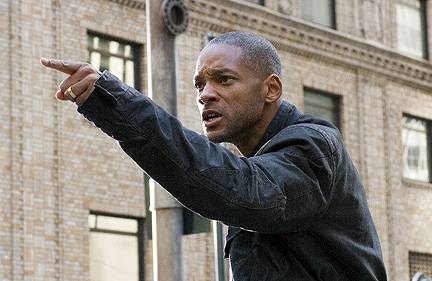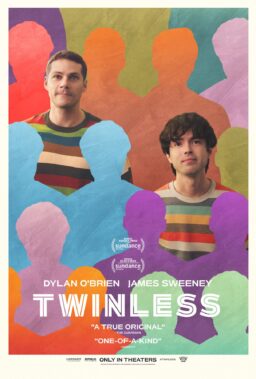Q. I am a devoted fan of Ian McEwan’s novel “Atonement,” one of those books that raises your heartbeat and ignites conflicting emotions and thoughts like fireworks exploding in the sky. So many nights I returned to that book to amuse myself for several hours by just repeating the poetry of McEwan’s prose, its words melting over my tongue like butter.
I walked out of the film “Atonement” several hours ago and I am in awe. And I know it’s not a fluke—I’m not just exaggerating its greatness because I am still fresh with excitement. One way you can tell this film is surely on the level is that the tracking shot on the beach may be the greatest tracking shot of all time. I do enjoy tracking shots, now more than ever since I have come to realize how nearly impossible they are to film.
The tracking shot in “Atonement” captures so much, so subtly, from the background to the foreground, and touched upon every emotion that I possess—the shot alone could be another film all by itself and worth the price of admission. I was curious if you knew any of the behind-the-scenes facts about that. How long is that shot? Where did they film it? How long did it take them to film? On a budget this low? That whole image, Ferris wheel and all, may be my favorite to ever be captured on film.
Jonathan D’Ambrosio, Fairfield, CT
A. I wondered whether part of it was CGI. Amazingly, no. The whole thing is one unbroken five-minute take with a handheld camera. Director of photography Seamus McGarvey, who thinks it’s the best shot he’s ever done, describes how he did it at:
http://tinyurl.com/2es4uv
Q. I just sat through “I Am Legend” and have to say that the final act felt like watching a deflating balloon. While it’s apparent that Christian groups hold no qualms about denouncing movies that may or may not contain anti-Christian messages (and that they may or may not have seen), I am angered by movies that contain strong Christian messages. “I Am Legend” joins the list as the last movie I felt I should have walked out on as soon as the characters began debating “God’s plan.” The end shot of the sanctuary’s doors opening up to reveal church bells ringing over a peaceful community threw the entire movie into “allegory” territory, with the sinful New Yorkers banished to the darkness and the staunch God-fearing survivors triumphing by returning to their religious ways. It’s sad to ask, but what do you think of adding a “religious content” warning to movies, as in “This movie contains profanity, brief nudity, Christianity?”
David Young, Ayutthaya, Thailand
A. That’ll be the day. More to the point, what does the spiritual status of the survivors and victims have to do with a nondemoninational virus? And can Buddhists, Jews, Hindus, Muslims and agnostics hope for a cure?
Q. Your interview with Paul Schrader served as a big-time wake-up call. His “Light Sleeper” was one of the best and most underrated films of the 90’s and the only DVD available is an old and lousy 4:3 DVD from 1998. Does Paul have anything going in revisiting “Light Sleeper,” and some of his other past films in comprehehnsive fashion, with new transfers and features? Other candidates include “The Comfort of Strangers” (like “Atonement,” from an Ian McEwan novel) and the sublime “Mishima: A Life in Four Chapters.”
Shane Buettner, online editor, HomeTheaterMag.com, Gig Harbor, WA
A. A DVD of “Mishima,” my current Great Movie, is in preparation by the Criterion Collection, with commentary by Schrader. I agree with you about the other titles you praise.
Q. You’re right about the great performances of J.K. Simmons and Allison Janney as the parents in “Juno.” They’re allowed to be smart, funny people who care about their kids. I was immediately reminded of Paul Dooley and Barbara Barrie as the parents in the wonderful “Breaking Away,” a similar movie in many respects. Are there any other examples of great parental roles you can think of?
Andrew Bradt, New York, NY
A. Well, John Mahoney was a great dad in “Say Anything,” but he turned out to have a guilty secret. Sam Waterston and Tess Harper were great parents in “The Man in the Moon,” the movie where Reese Withersoon had her first kiss. Michael Moriarty and Ann Dowd are loving parents in “Shiloh,” although their son doesn’t always see it that way. But Juno’s parents are probably the funniest and most lovable.
Q. Using digital processing, an intrepid filmgoer has revealed what Bill Murray whispered to Scarlet Johansson at the end of “Lost in Translation!” Here is the proof:
www.youtube.com/watch?v=5MV7Sym8bIQ
Justin Weiss, Tokyo, Japan
A. I have three reactions: (1) If that’s correct, it’s a letdown; (2) I felt like Gene Hackman in Francis Coppola’s “The Conversation,” trying to decide what I’d heard; (3) I think Sofia Coppola made the right decision artistically by leaving it to our imaginations.
Q I think you’re the only critic who has commented on one of the glaring holes in “I Am Legend,” namely, how did Alice Braga get into (and out of) New York — with a car! There are others: How does Will Smith‘s apartment still have running water? How can he pump gas for his car if there is no electricity in Manhattan other than the mega-generator we have to assume is powering his apartment? And if there is electricity to pump the gasoline, why aren’t the street lights working to scare away the light-averse mutants? There couldn’t be electricity, of course — no one’s operating a power plant! They’re all dead! — ergo, no gasoline for Will.
Then again, with all those dead people, why is he bothering to try to shoot deer? He can go into any supermarket and pick up as much canned food as he and his dog could ever need. These are, of course, quibbles about what was a very scary, fun movie to watch with a terrific performance by Will Smith. This leads to my question: how important do you feel these types of plot holes are to your response to a movie? Do you care? Jessica Klein, Los Angeles, CA
A. Not very. Since the whole movie is imposible, why quibble? Still, it’s distracting to see flaws in the interior logic of the world it creates. The original Richard Matheson novel at least established its reality and stuck to it.
Q. Variety has a shocking article saying the digital copies of great films like “Taxi Driver” are starting to decay. I thought digital files were forever.
Greg Nelson, Chicago
A. Digital information is timeless, but the storage media may not be. Jeff Joseph, the movie sound guru from Los Angeles, writes me: “Although digital files are ‘forever,’ the ability to read and interpret them through hardware and software in the future is unknown. Video and computer systems change constantly. So not only do the digital files have to be saved, but so do older computers and software. It can be dicey. On the other hand, I can take a piece of film from 100 years ago and with a flashlight and magnifying glass, be able to view it.”












